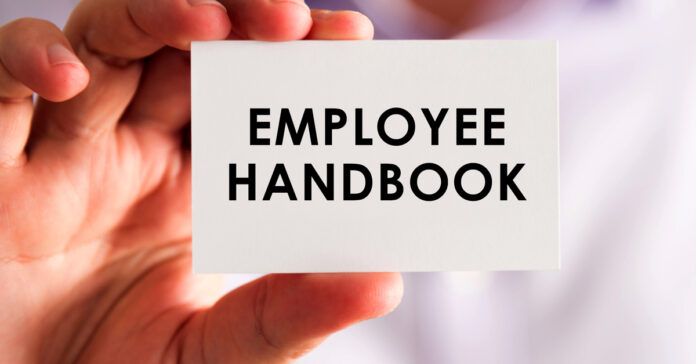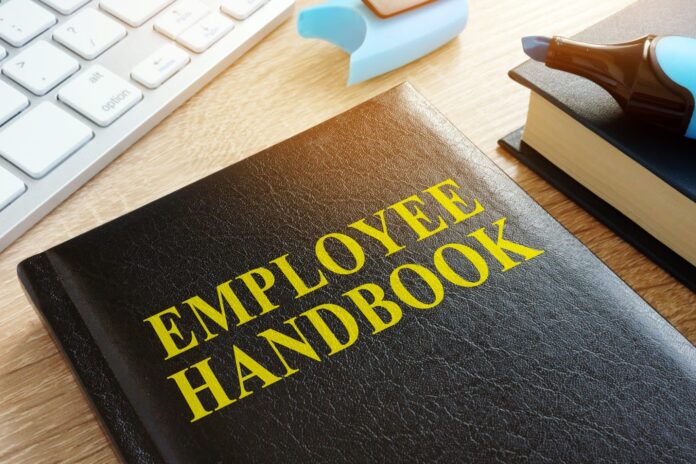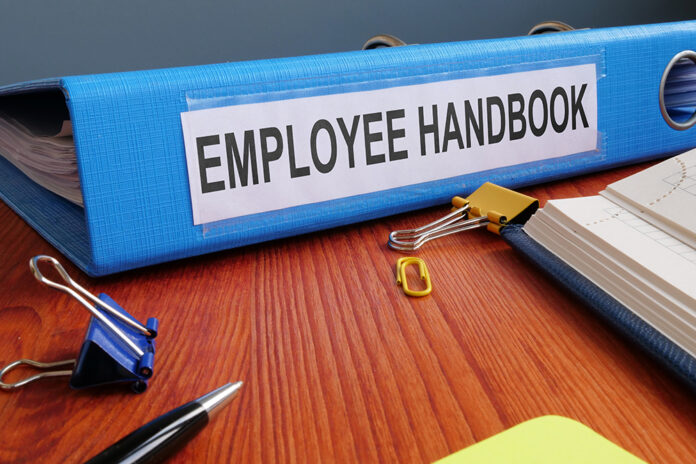In today’s dynamic business environment, companies need to be aware of their legal obligations towards their employees. One of the most effective ways to ensure compliance with employment laws is by having a strong and comprehensive employee handbook. A well-written handbook not only sets out the expectations for employees but also provides a guide for employers on the various work laws they must comply with. In this article, we will discuss the importance of a strong worker handbook in compliance with employment law.
Introduction to Employee Handbooks
An employee handbook is a critical tool for businesses to communicate their policies, procedures, and expectations to employees. It is a written document that outlines the company’s expectations for employee behavior and provides employees with information about their rights and obligations.
Purpose and Benefits of Employee Handbooks

The purpose of a handbook are to provide workers with clear and concise information about the company’s policies and procedures. Doing so helps to promote consistency and fairness in the workplace and reduces confusion and misunderstandings.
Employee handbooks are a vital resource for businesses looking to protect themselves against legal claims. In the event of a lawsuit from a worker, an employment solicitor in London may look to the handbook as evidence of the company’s compliance with job laws. By setting out clear policies and procedures that are consistent with these laws, the handbook can serve as evidence that the company has taken steps to comply with legal obligations.
Topics Covered in Employee Handbooks

A comprehensive worker handbook should cover a wide range of topics. Some of the most important topics include:
- Employee benefits
- Working hours
- Conduct standards
- Disciplinary procedures
- Equal employment opportunity
- Harassment and discrimination
- Wage and hour laws
Compliance with Employment Laws

Compliance with employment laws is essential for any business. Failure to comply with work laws can lead to legal liability, fines, and reputational damage. A comprehensive handbook can help businesses ensure that they comply with job laws by setting out clear policies and procedures.
Equal Employment Opportunity
One of the most important career laws is equal employment opportunity (EEO). A strong handbook should include policies on EEO that comply with federal, state, and local laws. These policies should set out the company’s commitment to providing a workplace free from discrimination and harassment and should include information on the complaint and investigation process.
Harassment and Discrimination

In addition to EEO, a comprehensive employee handbook should include policies on harassment and discrimination. These policies should set out the company’s expectations for appropriate behavior and the consequences of violating these policies. They should also include information on how workers can report harassment and discrimination and how the company will investigate and respond to complaints.
Wage and Hour Laws
Wage and hour laws are another critical area of compliance for businesses. A strong handbook should include policies on minimum wage, overtime, and time off. These policies should comply with federal, state, and local laws and should provide workers with clear information about their rights and obligations.
Protection against Litigation
In today’s litigious society, businesses face an ever-increasing risk of lawsuits from employees. As such, companies must take steps to protect themselves against the risk of litigation. One way in which businesses can reduce their exposure to legal claims is by having a comprehensive guide that sets out the company’s policies and procedures.
Preventing Employee Claims

A well-written handbook can help to prevent worker claims by setting out clear policies and procedures that are consistent with job laws. This can help to ensure that workers understand their rights and obligations and are less likely to make claims against the company.
Mitigating Damages
If a company is sued by an employee, a strong worker directory can help to mitigate damages. By demonstrating that the company has taken steps to comply with work laws and has set out clear policies and procedures, the company can show that it has acted in good faith. This can help to reduce the risk of liability and mitigate any potential damages.
Evidence of Compliance
A comprehensive employee handbook can also serve as evidence of the company’s compliance with workplace laws. If a company is accused of violating job laws, the worker guide can be used to demonstrate that the company has taken steps to comply with these laws. This can help to reduce the risk of legal liability and mitigate any potential damages.
Consistency and Clarity
Consistency and clarity are two critical elements of a strong worker directory. A well-written guide should provide clear and concise information about the company’s policies and procedures. It should also be consistent in its application of these policies across the organization.
Promoting Consistency

A strong employee handbook promotes consistency in the workplace. By setting out clear policies and procedures, the guide ensures that all workers are aware of the expectations placed upon them. This can help to reduce confusion and misunderstandings, promoting a more productive work environment. Consistency in the application of policies also helps to promote fairness and equity in the workplace.
Reducing Confusion
In addition to promoting consistency, a strong employee handbook also helps to reduce confusion. By providing clear and concise information about the company’s policies and procedures, the handbook ensures that workers understand what is expected of them. This can help to reduce confusion and misunderstandings, leading to a more efficient and effective workplace.
Enforcing Policies
A strong employee handbook also helps to enforce policies. By setting out clear policies and procedures, the guide makes it easier for managers and supervisors to enforce these policies consistently across the organization. This helps to ensure that workers are held accountable for their actions and that the company’s policies are respected and followed.
Employee Education
An employee handbook is also a valuable tool for worker education. It provides employees with information on their rights and obligations, as well as the company’s expectations. This can help to promote a more engaged and informed workforce, which can lead to increased productivity and job satisfaction.
Conclusion

In conclusion, a strong employee handbook is an essential tool for companies to ensure compliance with employment laws. It helps to protect the company against litigation, promotes consistency and clarity in the workplace, and provides valuable education to workers. If you are a business owner or HR professional, it is important to ensure that your employee directory is up-to-date, comprehensive and reflects current legal requirements.









